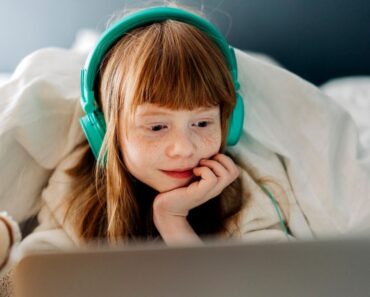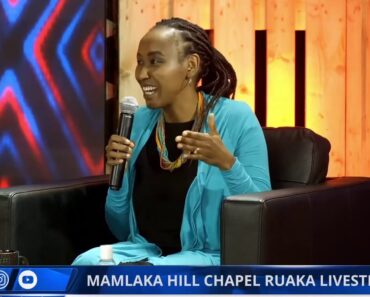As September approaches, and many parents eagerly await more information about what the next school year will look like, our anxiety levels are sky-high. But our kids need to be reassured and prepared for what the new routine might look like this fall, too.
“There is no perfect solution when it comes to schooling millions of children during a pandemic,” says Dr. Karen Wang, a child and adolescent psychiatrist at Sunnybrook Health Sciences Centre. “However, children are amazingly resilient and adaptable when they’re given sufficient time to process changes that are occurring.”
We asked Wang, who’s also an assistant professor in the Department of Psychiatry at the University of Toronto, to help us identify and manage our kids’ back-to-school worries. Turns out, we had a lot of parental back-to-school anxiety to work through ourselves, too.
What are the signs a kid is struggling with back-to-school anxiety? What should parents be watching for?
Signs of anxiety typically include ongoing worries, difficulty with focusing and concentrating, feelings of panic, dizziness or lightheadedness. Some children may complain of stomachaches and headaches. They may also be more irritable, tired and cranky. They may even state that they are scared about returning to school because of COVID-19. As we head into September, it’s important to have ongoing, regular communication with your child about their worries and to work with them to overcome their anxiety.
What does anxiety look like in a little kid (ages 4 to 6) as opposed to an older kid (7 to 10)?
Younger children tend to have more difficulty expressing how they feel, so they may not articulate they have anxiety, but they may exhibit it in other ways, like temper tantrums, crying spells and other behavioural changes. In more severe cases, they may also show signs of regression. For example, refusing to sleep by themselves when they have done so easily before, or bedwetting at night when they were fully toilet trained before. Older children can often share how they are feeling and will say they are worried and ask a lot of “What if…?” questions. They may even bring up concerns around death and dying.
How much does parental anxiety rub off on the kids? Should parents try to seem calm, even if we’re internally freaking out?
Parents’ mental health can definitely affect a child’s mental health—kids observe how we respond to situations. Even if children don’t appear to cognitively appreciate what is going on, they can sense the tension in the air. If a parent is behaving in a fearful manner, children can also become much more scared—they don’t have the same cognitive capacity and skills to respond to stressful situations as adults.
Parents need to find healthy ways to address their anxiety. Oftentimes I will counsel parents to draw strength from sharing their struggles with other family members, friends, support groups or faith-based community groups. Also, exercise, proper nutrition and sleep will help to reduce stress and increase our capacity to handle the challenges that lie ahead. If a parent is experiencing significant emotional distress which is affecting their ability to engage with their child in a healthy manner, it would be best for them to speak with a healthcare professional.
How harmful will it be for kids if school shuts down again? Should we warn them this could happen?
While it is a possibility that schools may reopen temporarily, only to shut down later, we can emphasize that we can all do a great deal to help keep schools open and that the individual choices we make can have a larger impact. For a five year old, you might say, “Yes schools might close down again but we can all do something to stay healthy and help our schools stay open. What do you think we can do?” Use that conversation as a teaching moment to focus on practising hand hygiene, physical distancing, symptom screening and proper mask wearing.
We shouldn’t necessarily conceal information from our children, particularly if they are asking about the pandemic directly. However, we do need to be mindful of what kind of information they can understand. Many times, young children are looking for simple reassurance that their caregiver will be there to protect them and guide them. For all kids, regardless of their age, we can remind them that we are here for them and that it’s valid to have conflicting emotions right now. We can also remind them that learning to tolerate some degree of uncertainty is actually normal and healthy.
Do you think a more consistent school model (like homeschooling or private education pods) is better for kids with anxiety, because they won’t have to deal with closures or absences due to quarantines and testing delays?
In general, consistency is ideal for children. They thrive on structure, routine and order. It contributes to their sense of safety, particularly when there have already been many disruptions in their lives as a result of the pandemic. Ongoing disruptions can activate a prolonged stress response which can impact the nervous, endocrine and immune systems, contributing to longer-term health and emotional difficulties.
Having said that, there is no one right answer in choosing a particular learning model for a child in the midst of this pandemic. Each family will have to weigh the risks and benefits of online learning, in-person schooling, or a hybrid. For many working families, there is no option but regular, full-day public school. For others, where the risk of infection could have serious detrimental effects (e.g. living with individuals who are immunocompromised or elderly), homeschooling, private school or community education pods may be the best option.
Regardless of which model you choose, it’s important to remember that children require a great deal of socialization with similar age peers, in order to learn and develop socially, emotionally and mentally. Any model that restricts opportunities to intermingle with other children will be a detriment in the long run, even if it is safer from an infection-control perspective. It’s important to pay attention to how the child responds to the learning environment in the first few weeks of school and make adjustments or changes if necessary.
If you’re struggling to identify the levels of risk involved with a particular schooling model and how best to weigh all the pros and cons, consult with a health care provider.
Let’s talk about masks. Some parents worry that their young kids won’t be able to properly communicate because they won’t be able to see their teacher’s facial expressions.
Young kids learn language through both aural and visual means. If teachers are speaking clearly and loudly, the masks should not pose a barrier to clear aural communication. In addition, there are masks that have been designed for the hard of hearing community and include a transparent component so that children can actually see facial expressions. This type of mask might be ideal for younger grades where language acquisition is a major focus.
Some kids will need to wear masks at school, and many parents are worried their kids won’t be able to get used to it. Is this valid?
Masks for young children can present new challenges, but many of these challenges are surmountable. I think we often underestimate how resilient and adaptable children can be. Many parents have commented on how quickly their kids have been able to get used to a mask. In Canada, several cities have now mandated masks indoors for children two years old and above. It becomes easier once children have practiced at home and also see proper role modelling (e.g. parents wearing masks, or other children wearing them).
Due to the fact that there is still a risk of transmission in young children and we don’t fully understand the long term effects of COVID-19 on children, I think it would be prudent for students to be wearing masks in school.
Do you think school will harm kids who are already verging on germaphobic, or will the hygiene routines at school normalize this?
As a child and adolescent psychiatrist, I have treated children who have an obsessional level of fear around germs. The difference between a healthy level of concern versus an obsession is that an individual with obsessions cannot control their thoughts—they’re bombarded with intrusive anxious thoughts which interfere with their ability to function in school, at home and with friends.
The reopening of schools can actually be beneficial for kids who suffer from obsessional worries around germs. It helps to challenge their distorted thoughts and provides a much-needed structure to their day, so that instead of ruminating on their thoughts, they’re preoccupied with learning and socializing. Returning back to school is a good thing, provided that community transmission rates are low and students are following public health measures appropriately.
Crying at drop-off and separation anxiety for a couple weeks after a transition is normal for little kids. Do you think it will be worse this fall, since many children have been home for so long?
It depends on the child. Some kids are very eager to return back to school and may not experience any severe separation anxiety. Other children, particularly those that already have an underlying anxiety issue or a very shy temperament, may find it more of a struggle to adjust to a new routine. As parents, it’s good to start preparing them for the return to school by talking about the daily schedule and how things will change.
The first month of school does tend to be more difficult in general, for everyone, and it’s important to keep in mind that feeling some anxiety (both parent and child) is normal during this adjustment period.
Will kids who attended daycare or camp this summer have an easier time in September than those who didn’t?
I think the children that have attended summer camp or daycare are in a much better position for the fall because they have already established a daily routine and learned how to follow public health measures in various educational settings. From parents that I have spoken with, they were surprised at how well their children fared in summer camp.
Having said that, in general, I am anticipating that there will be higher levels of anxiety in children leading up to September. It is therefore crucial that parents begin to help children develop healthy coping strategies to manage their worries. These strategies could include encouraging regular communication and fostering discussions around emotions; relaxation training (e.g. deep breathing); practicing daily routines and troubleshooting upcoming problems; improving other components of healthy living such as having a decent sleep routine, eating well, and exercise.
Some kids have become newly skittish around strangers and sensitive about personal space since the pandemic began. What can a parent do to help them feel more comfortable?
Physical distancing is important and we can explain to children that it’s to protect us from germs, but that we don’t have to be afraid of our friends. If the parent remains calm and continues to engage in conversation in a natural way, children will gradually sense that it is safe.
Some families include one other trusted family with children in their bubble. This step must be taken with caution, but can reap benefits in terms of normalizing social contact for both parents and children. Outdoor activities (e.g. in an uncrowded park) also provide an opportunity to be around other people while pursuing your own family activities.
There are parents who are currently trying to choose between sending their kids to school and seeing grandparents. Which choice is better for kids’ well-being?
Having to choose between family and school is a difficult choice; however there are numerous creative ways for children to maintain connections with their grandparents. I have recommended that parents encourage their elderly relatives to use the phone or virtual platforms so that even though they cannot see their grandchildren in person, they can still have a sense of how they are doing and vice versa. Also, some grandparents will do drive-by home visits where they will stay inside their car and see their grandchildren from inside their vehicle.
We sent our kids back to daycare mid-summer. My toddler learned not to share because of germs, and now he’s using it as an excuse not to share with his own big brother! Will this be one of the lasting effects of coronavirus isolation and social distancing?
Given that children are typically very good at following rules, this comment is actually developmentally appropriate because he is simply following what he has been taught in school. He just needs to understand that there are exceptions to rules. Older children will not have difficulty understanding that family members are not the same as other children at school. For younger children, I would just reiterate that “yes we don’t share outside of the home, but inside the home, we can share toys.”
In terms of the lasting effects of coronavirus isolation and social distancing, we don’t know what the specific long-term effects of COVID-19 will have on children and youth in Canada. That research is currently underway. We can certainly hypothesize that with the ongoing disruptions to school, social isolation, elimination of community supports and cultural rituals that children overall are being subjected to greater stress. However, which factors can mitigate against that stress are still being worked out. It is evident, though, that the pandemic accentuates the current inequities across society and some sectors of the population will experience greater socioeconomic, physical and mental health consequences.
Editor’s note:
We hope you enjoyed reading this article from Today’s Parent. We’re working hard to provide our readers with daily digital articles that aim to inform, inspire and entertain you.
But content is not free. It’s built on the hard work and dedication of writers, editors and production staff. Can we ask for your support? We are currently offering 3 issues of the print edition of Today’s Parent for only $5. A subscription also makes a great gift for that new parent in your life.
Our magazine has endured for more than 35 years by investing in important parenting stories. If you can, please make a contribution to our continued future and subscribe here.
Thank you.
Kim Shiffman
Editor-in-Chief, Today’s Parent

































